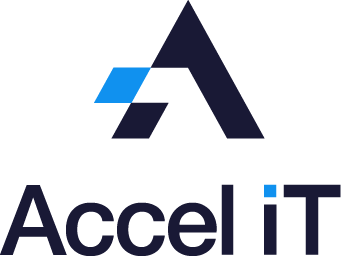Xero vs MYOB: Comparing Accounting Platforms
When it comes to cloud-based accounting software, Xero and MYOB are two of the most popular platforms available on the market today. While both platforms offer a range of features and benefits for businesses, there are several key differences between them that can impact which one is the best fit for your business.
What are the major differences? Here’s a comparison:
- Pricing: One of the biggest differences between Xero and MYOB is their pricing structures. Xero’s pricing starts at $13.50 per month for their Starter plan, while MYOB’s pricing starts at $27 per month for their Essentials plan. While Xero’s pricing may seem more affordable at first glance, it’s important to note that the price of Xero increases as your business grows and requires more features. On the other hand, MYOB’s pricing includes more features in its Essentials plan, making it a more cost-effective option for businesses that need those features.
- Features: Both Xero and MYOB offer a range of features designed to help businesses manage their finances more effectively. However, Xero is known for being more user-friendly and intuitive, with a focus on automation and simplifying complex tasks. MYOB, on the other hand, is more comprehensive and includes more features for businesses that need more advanced accounting and payroll capabilities.
- User Interface: The user interface of Xero and MYOB is another key difference between the two platforms. Xero’s interface is designed to be simple and easy to navigate, making it a great option for small business owners who may not have a lot of accounting experience. MYOB’s interface, on the other hand, is more complex and can take some time to get used to. However, once you become familiar with the platform, it offers a wealth of information and features.
- Integration with Third-Party Apps: Both Xero and MYOB offer integration with a range of third-party apps, including payment gateways, project management tools, and inventory management systems. However, Xero is known for offering more integrations and making it easier for businesses to connect with the apps they need. MYOB’s integrations are still comprehensive, but they may not be as easy to set up or use as Xero’s.
Which platform is best for your business? Here’s a quick breakdown:
Xero is best for:
- Small businesses with basic accounting needs
- Businesses that want an intuitive, user-friendly interface
- Businesses that need automation features to save time
- Businesses that want to integrate with a wide range of third-party apps
MYOB is best for:
- Medium to large businesses with more complex accounting needs
- Businesses that require advanced payroll and inventory management capabilities
- Businesses that want a comprehensive accounting solution with a wealth of features
- Businesses that want to manage their finances on-premise or in the cloud
Xero and MYOB both offer a range of benefits and features that can help businesses manage their finances more effectively. However, the differences between the two platforms can impact which one is the best fit for your business. By considering factors such as pricing, features, user interface, and integration with third-party apps, you can determine which platform is the best choice for your business.
From an IT perspective, there are several factors to consider when comparing Xero and MYOB:
- Cloud-based vs desktop: Xero is a cloud-based solution, meaning that it does not require installation on local computers and can be accessed from any device with an internet connection. This can make it easier for IT teams to manage, as they do not need to worry about software installation and updates on multiple devices. MYOB, on the other hand are slowly shifting to the cloud but is primarily a desktop-based solution.
- Security: Both Xero and MYOB take data security seriously and use industry-standard encryption and security protocols to protect user data. However, since Xero is a cloud-based solution, users may have concerns about data security in the cloud. IT teams may need to evaluate the security measures in place and ensure that they are comfortable with the level of protection offered.
- Integrations: Xero has a wide range of integrations with other business software, which can be helpful for IT teams looking to streamline their workflows and automate tasks. MYOB also offers integrations, although it may not have as many options as Xero.
- Scalability: Both Xero and MYOB are designed to scale with growing businesses, but Xero may be more scalable due to its cloud-based nature. With Xero, businesses can easily add new users and locations without worrying about hardware limitations or software licenses. MYOB may require additional hardware and software licenses to scale.
- Support: Both Xero and MYOB offer customer support, but the level of support and availability may vary. IT teams may want to consider the quality and availability of support when evaluating which solution to choose.




